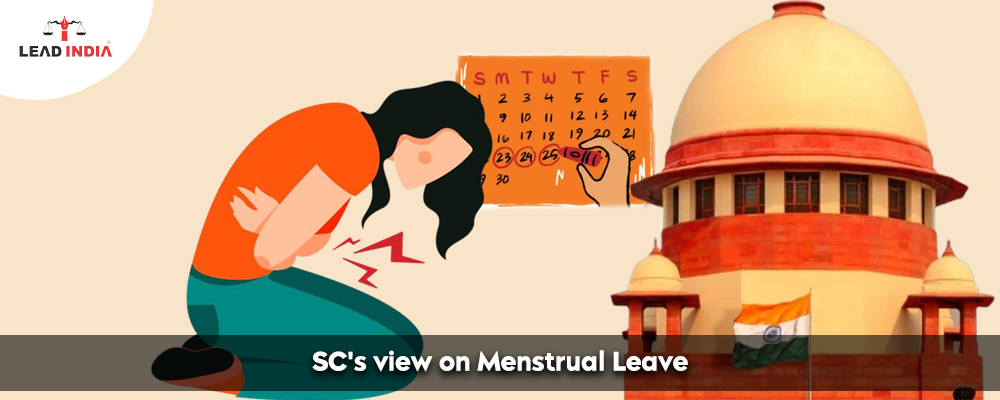Menstrual leave is a type of time off reserved for women who suffer from menstrual pain. It advises that workers be granted leave from work when menstruating, just as they would for any other disease. These are unpaid leaves that are taken in addition to the regular sick leave that all employees are entitled to.
Menstrual leave policies have not been extensively adopted in India, as only Bihar and Kerala have established such rules for women. Bihar implemented its policy in 1992, allowing employees to take two days of paid menstruation leave every month. The Kerala government has approved menstrual and maternity leave for state college students. A similar plan has been started in a Kerala school as well.
The recent two initiatives relating to the mensuration bill attempted to ensure women’s access to periods of healthcare and applications for menstrual leave but were not successful.
Another proposed bill, the “Right of Women to Menstrual Leave and Free Access to Menstrual Health Products Bill, 2022,” which sought to provide three days of paid leave for women and transwomen during their periods and extend the benefit to students, was also introduced recently, but it did not pass.
Need A Legal Advice
The internet is not a lawyer and neither are you. Talk to a real lawyer about your legal issue

SC’s View on Menstrual Leave
Similarly, earlier this year, in February, the SC refused to hear a PIL seeking menstruation leave for female students and working women throughout the country, citing concerns over the policy. It additionally urged the petitioner to make a representation to the Ministry of Women and Child Development, which might arrive at an appropriate decision in this regard.
Recently, SC expressed concern that legislation governing menstrual leave for women might have unexpected consequences, such as removal from the job. The court emphasized that this issue is best suited for government policy rather than judicial intervention. During a hearing of the PIL seeking a demand that the central and state governments implement menstrual leave policies, Chief Justice of India DY Chandrachud expressed concern. Mandating such leaves will result in women being excluded from the workplace.
The court underlined that this matter includes numerous policy implications and should not be addressed by the judiciary. This is a government policy aspect that the courts will not look into.
The Court ordered the petitioner to approach the Secretary of the Ministry of Women and Child Development and Additional Solicitor General Aishwarya Bhati. The Court directed the secretary to look into the matter at the policy level, make a judgment after interacting with all parties, and see if a model policy can be made.”
The court also stated that this decision does not preclude any state government from pursuing separate measures regarding menstruation leave.
On the one hand, there is a need to prioritize workforce health by being more empathetic and creating an equitable workplace; on the other hand, there is an opposing viewpoint that menstrual leave decisions should be left to the discretion of organizations with no official laws. Concerns have been raised that restrictions may result in greater financial costs, potentially favoring male employees over female colleagues. Furthermore, there are concerns that menstruation leave will be used as an excuse for discrimination. What is frequently forgotten is the long-term impact that such laws have on the physical and emotional health of women in the workplace. As a result, it is recommended that organizations create flexible leave policies that provide women with the choice of taking paid or unpaid leave.
Lead India offers free legal assistance, digital information, and other legal assistance. We offer a forum where you may talk with a lawyer and ask legal questions. Lead India’s lawyers are here to assist you with any legal issues. Lead India’s attorneys are available to help you with any legal matters. In addition, Lead India provides free online legal assistance in India. Lead India not only offers online legal support, but it also enables users to ask free specialized questions.





 Talk to a Lawyer
Talk to a Lawyer